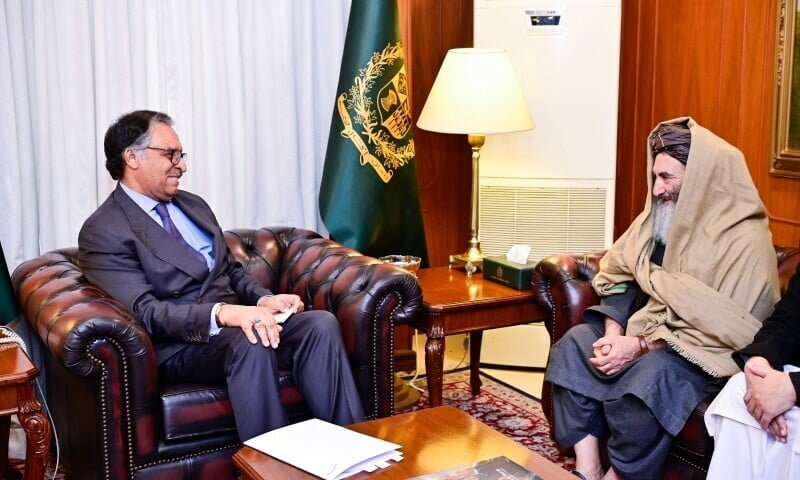A high-level Taliban delegation is in Islamabad for talks with Pakistani officials. This delegation is led by Mullah Mohammad Shirin Akhund, Deputy Director of Strategic Intelligence of the Ministry of Defense and acting governor of Kandahar.
Zabihullah Mujahid, the spokesperson for the Taliban government, stated that the delegation’s visit is part of the joint Afghanistan-Pakistan coordination committee’s efforts. These efforts focus on resolving issues along the Durand Line and improving conditions for communities in the border areas, as per Mujahid’s tweet on his X account.
According to BBC Pashto, the delegation’s visit is significant, particularly in light of Mullah Shirin Akhund’s close associations with the Taliban’s top leadership. The visit is seen as a crucial move to ease strained relations between Kabul and Islamabad, especially with the recent increase in activities of the Tehreek-e-Taliban Pakistan (TTP).
Radio Mashal reported that the delegation includes officials from the Taliban’s Ministries of Defense, Foreign Affairs, and Intelligence. The report highlights the significance of this visit in the context of the TTP’s escalating activities and its implications for both Afghanistan and Pakistan.
In a statement reported by journalist Tahir Khan, Pakistani Foreign Minister Jalil Abbas Jilani described his meeting with Mullah Shirin Akhund as productive. Mr. Jilani emphasized the importance of continuous engagement and stressed the mutual benefits of bilateral relations. He noted the need to address comprehensive issues, including trade and connectivity.
This visit occurs amid a backdrop of historical disputes over the Durand Line, a contentious border drawn by the British in 1893, which has long been a source of contention between the two countries. The disagreement stems from Afghanistan’s refusal to recognize the Durand Line as the official border, leading to frequent border skirmishes.
As reported by both BBC Pashto and Radio Mashal, the current talks focus on these contemporary challenges, aiming to find practical solutions to reduce border skirmishes and enhance security cooperation.
Additionally, the discussions are expected to address the recent tensions over Pakistan’s forced repatriation of undocumented Afghan refugees and the impact of strained relations on trade and movement across the Torkham border. Ensuring smoother cross-border movement and trade facilitation is vital for both nations’ economies.





